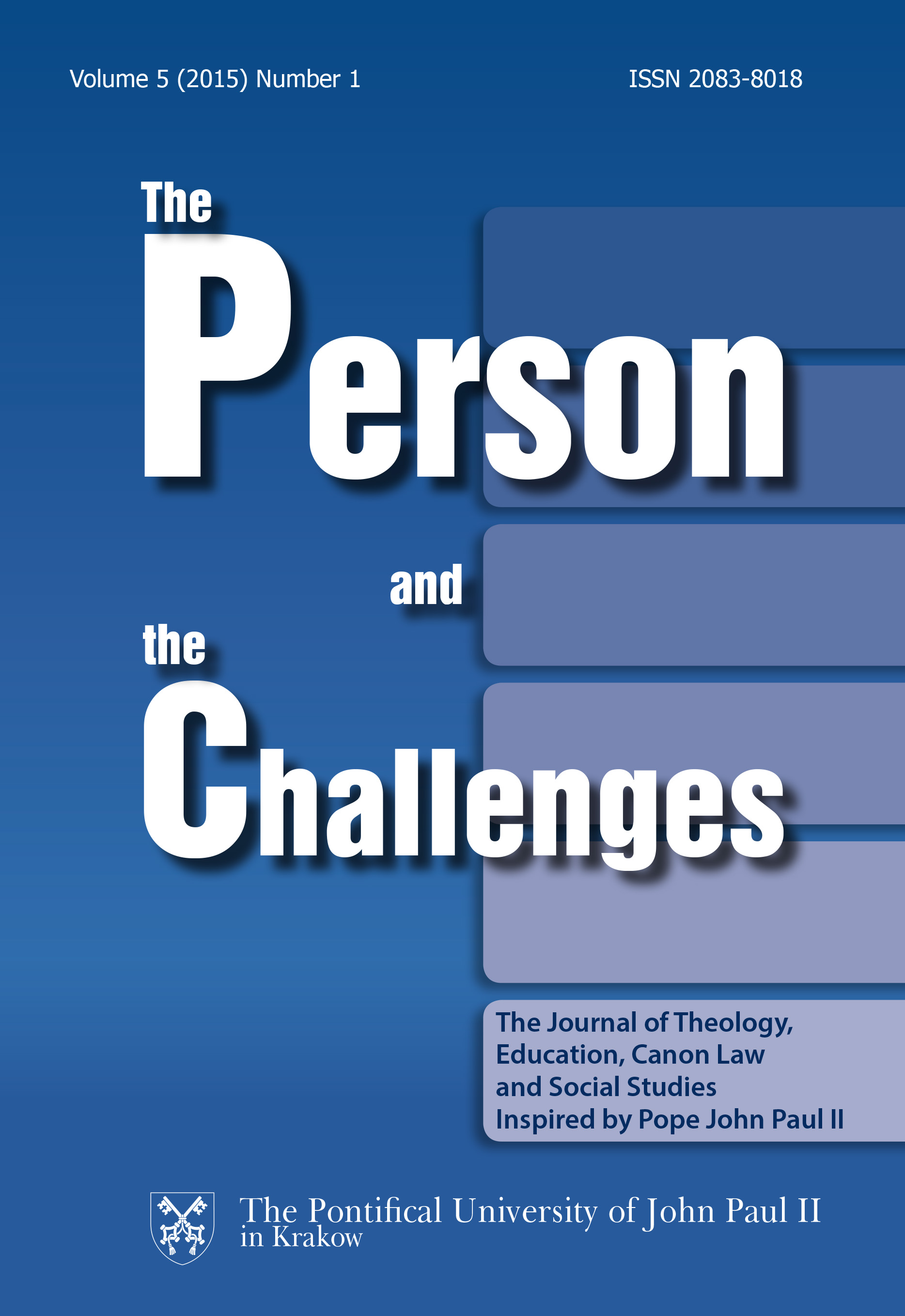Mercy as a Theological Term
DOI:
https://doi.org/10.15633/pch.931Słowa kluczowe:
Mercy, Bible, spiritualityAbstrakt
The author of the article analyses different meanings of the term ‘mercy’. He begins with the ancient use of the word by pagan philosophers. This is the background for the analysis of the term ‘mercy’ in the Old and New Testament. The biblical sources lead to the definition of dogmatic foundations of God’s Mercy and allow the ethical and moral aspects of the human mercy to be shown. Closely connected with the last is the social dimension of the mercy. The author also deals with other dimensions of the mercy, such as: pastoral, liturgical, psychological and juridical. He also discusses the meaning of the mercy in the spirituality and Christian art.
Bibliografia
Barackman F. H., Practical Christian Theology: Examining the Great Doctrines of the Faith, Grand Rapids MI 2001.
Barmherzige Brüder, Barmherzige Schwestern, in: Lexikon für Theologie und Kirche, v. II, Freiburg im Breisgau 2006, c. 11-13.
Barmherzigkeit, in: Lexikon für Theologie und Kirche, v. II, Freiburg im Breisgau 2006, c. 14-17.
Benedict XVI Caritas in veritate.
Benedict XVI, Deus caritas est.
Charles R., Maclaren D., The Social Teaching of Vatican II: Its Origin and Development, San Francisco 1982.
Cox J., Divine Mercy; or, the Riches of God’s Pardoning and Paternal Love, London 1838.
Ferdek B., Miłosierdzie, in: Leksykon Duchowości Katolickiej, Lublin-Kraków 2002, p. 519-522.
Grisez G., The Way of the Lord Jesus, v. 2: Living a Christian Life, Quincy 1993.
Homo Meditans, v. 5, Miłosierdzie w postawie ludzkiej, ed. W. Słomka, Lublin 1989.
Kolekcja Communio, nr 15, Bóg bogaty w miłosierdzie, Poznań 2003.
Kongregacja do Spraw Wychowania Katolickiego, Wskazania dotyczące studiów i nauczania doktryny społecznej kościoła w ramach formacji kapłańskiej, 1988.
Krucina J., Komentarz do encykliki Jana Pawła II „Dives in misericordia”, in: Encyklika Ojca Świętego Jana Pawła II o Bożym Miłosierdziu „Dives in misericordia”, Wrocław 1996.
Machniak J., Doświadczenie Boga w tajemnicy Jego miłosierdzia u Bł. Siostry Faustyny Kowalskiej, Kraków 1998.
Miłosierdzie, in: Religia. Encyklopedia PWN, ed. T. Gadacz, B. Milerski, Warszawa 2003.
Seremak W., Miłosierdzie Boże a nowa ewangelizacja. Znaki czasu, Lublin 2001.
Nussbaum M. C., Philosophical norms and political attachments: Cicero and Seneca, in: Body and Soul in Ancient Philosophy, ed. D. Frede, B. Reis, Berlin 2009.
Parafia Narodzenia św. Jana Chrzciciela w Korzkwi, ed. Z. Płachta.
Scheeben M. J., Handbuch der Katholischen Dogmatik, v. IV, Freiburg 1948.
Schweicher C., Barmherzigkeit, Werke der, in: Lexikon der christlichen Ikonographie, v. 1, Freiburg im Breisgau 1994, c. 245-251.
Sherman N., Stoic Warriors: The Ancient Philosophy Behind the Military Mind, Oxford 2005.
Słomka W., Miłosierdzie Boże, in: Leksykon Duchowości Katolickiej, Lublin-Kraków 2002, p. 523.
Słomkowski A., Miłosierdzie Boże we Wcieleniu i Odkupieniu, in: Ewangelia Miłosierdzia, ed. W. Granat, Poznań 1970, p. 49-112.
The Oxford Dictionary of Christian Art and Architecture, ed. T. Devonshire Jones, P. L. Murray, Oxford 2013.
Thomas Aquinas, Summa theologica.
Torretto R., A Divine Mercy Resource: How to Understand the Devotion to Divine Mercy, Bloomington 2010.
Upton J., Mercy, in: The New Dictionary of Catholic Spirituality, ed. M. Downey, Collegeville 1993, c. 653n.
Veling T. A., In the Name of Mercy: A Meditative Exploration, “Pacifica-Australasian Theological Studies” 22/June 2009.
Warchoł P., Miłosierny Bóg i miłosierny człowiek. Teologiczna interpretacja miłosierdzia w nauczaniu Jana Pawła II, Wrocław 2007.
Witko A., Obraz Bożego Miłosierdzia, Kraków 2004.
Zabielski J., Wydobywanie dobra. Teologia chrześcijańskiego miłosierdzia, Białystok 2006.
Pobrania
Opublikowane
Numer
Dział
Licencja
Prawa autorskie (c) 2015 Wojciech Zyzak

Utwór dostępny jest na licencji Creative Commons Uznanie autorstwa 4.0 Międzynarodowe.
Autorzy publikujący w czasopiśmie udzielają jego wydawcy zgody o następującej treści:
- Autor zachowuje autorskie prawa majątkowe do utworu, a jednocześnie udziela wydawcy czasopisma zgody na jego pierwszą publikację w wersji drukowanej i wersji online na licencji Creative Commons Uznanie autorstwa 4.0 Międzynarodowe oraz zgody na wykonywanie opracowań, w tym przekładów.
- Autor ma możliwość udzielania zgody niewyłącznej na opublikowanie utworu w wersji, która ukazała się w czasopiśmie (np. zamieszczenia go w repozytorium instytucjonalnym lub opublikowania w książce), wraz z informacją o jego pierwszej publikacji w czasopiśmie.
- Autor może umieścić swój utwór online (np. w repozytorium instytucjonalnym lub na swojej stronie internetowej) jeszcze przed zgłoszeniem utworu do czasopisma.

